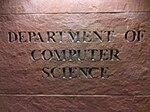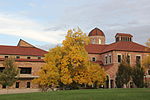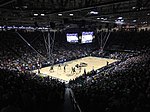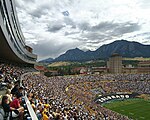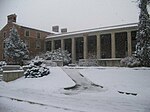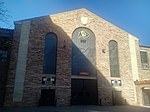BioServe Space Technologies

BioServe Space Technologies is a research institute within the University of Colorado in Boulder, Colorado. Since its foundation in 1987 it focuses on developing microgravity life science research and hardware. Its current center director is Prof. Louis Stodieck BioServe has designed, built and flown over 50 different payloads on over 40 space flight missions including the Space Shuttle, ISS, MIR, Soyuz, and Progress and recently the SpaceX's Dragon capsule and Orbital's Cygnus spacecraft. In 2011 BioServe was selected to be the official payload developer for the YouTube Space Lab - a contest where students were able to propose micro gravitational research and BioServe would develop the winner's experiment hardware and perform all of the mission integration and operations work. BioServe Space Technologies was also the designer of the Commercial Generic Bioprocessing Apparatus (CGBA) which is a temperature controlled incubator for experiments on cells, microbes, and plants currently in use on the ISS.
Excerpt from the Wikipedia article BioServe Space Technologies (License: CC BY-SA 3.0, Authors, Images).BioServe Space Technologies
Folsom Street, Boulder
Geographical coordinates (GPS) Address Website Nearby Places Show on map
Geographical coordinates (GPS)
| Latitude | Longitude |
|---|---|
| N 40.00725 ° | E -105.26272222222 ° |
Address
University of Colorado Boulder (Main Campus)
Folsom Street
80309 Boulder
Colorado, United States
Open on Google Maps
